Episode 205: Tips For Avoiding Coronavirus As States Reopen; The U.S.’s Worst COVID-19 Racial Disparity Is In Maine
This week on NEXT, how to stay safe during a pandemic as reopening continues in New England. Plus, Maine has the worst racial disparity for coronavirus infections in the country — we’ll talk about why. And a tattoo artist that covers up racist tattoos for free gets an uptick in requests.
New England Is Reopening, But COVID’s Still Here. Some Tips On Staying Safe.
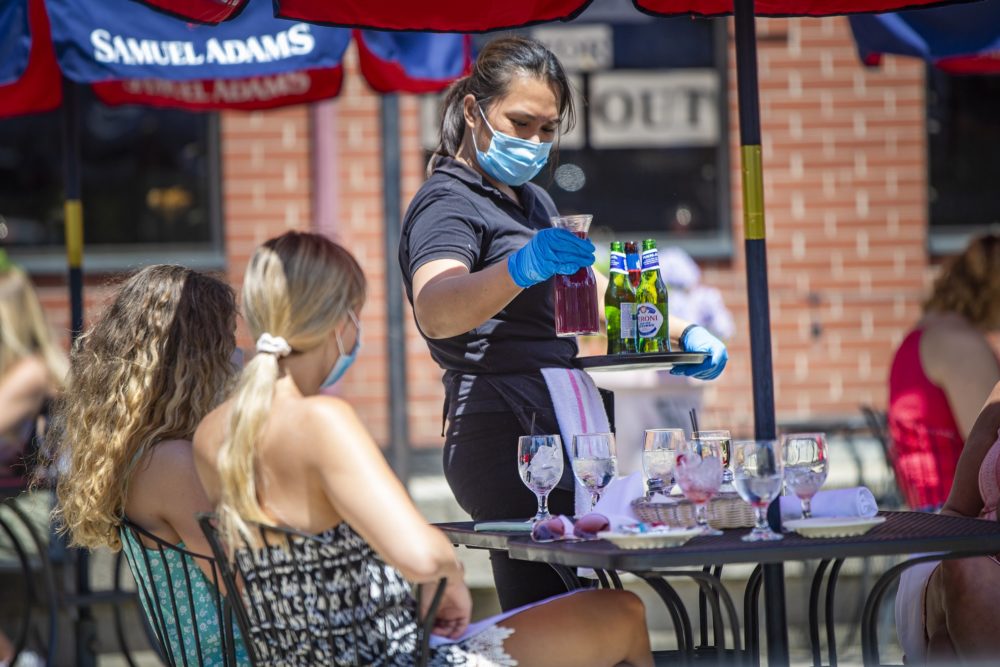
A server brings beverages to a group of people dining for lunch at Mother Anna’s in Boston’s North End. (Jesse Costa/WBUR)
Like the country at large, New England states are taking a patchwork approach to reopening during the pandemic. Rhode Island just entered phase three on Tuesday, while most of the other states are still in phase two — meaning we can now go inside a restaurant to eat, more stores can open, and in many states, people can go to the gym. But don’t be fooled, experts say: Reopening does not mean the pandemic is over.
Keith Grant, a senior system director for infection prevention and an Advanced Practice Registered Nurse at Hartford Healthcare Group in Connecticut, spoke to NEXT about steps we can take to try to avoid COVID-19 during this reopening phase.
Black Mainers Are More Than 20 Times More Likely To Get COVID-19 Than White Residents
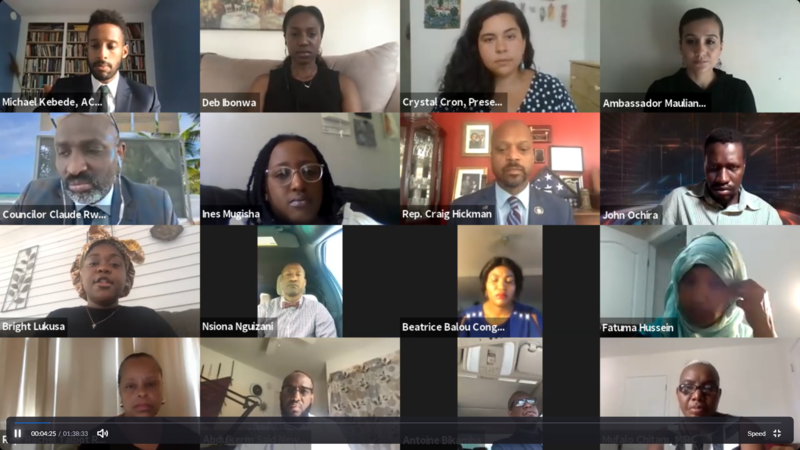
Speakers at a virtual press conference called on the state to provide more support for people of color. (Screenshot/Ed Morin/Maine Public)
Maine has one of the lowest infection rates for COVID-19 in the U.S. — and yet, the state has the worst racial disparity for coronavirus infections in the country, according to recent analyses from the Associated Press and Portland Press Herald. Just over one percent of Maine’s population is Black, but state data show that Black residents make up about a quarter of the state’s coronavirus cases. In neighboring New Hampshire and Vermont — also very white states — the disparity isn’t as severe.
State Rep. Craig Hickman, the longest-serving Black legislator in Maine, told NEXT that it’s harder for communities of color to be noticed and heard in Maine.
“As a Black man in rural man, I don’t even always see the disproportionate impact on people of color because there might be five people in the district I represent,” said Hickman, a farmer, businessman and poet. He also pointed to the role of systemic racism over generations.
Vermont Tattoo Artist Removes Racist Tattoos For Free
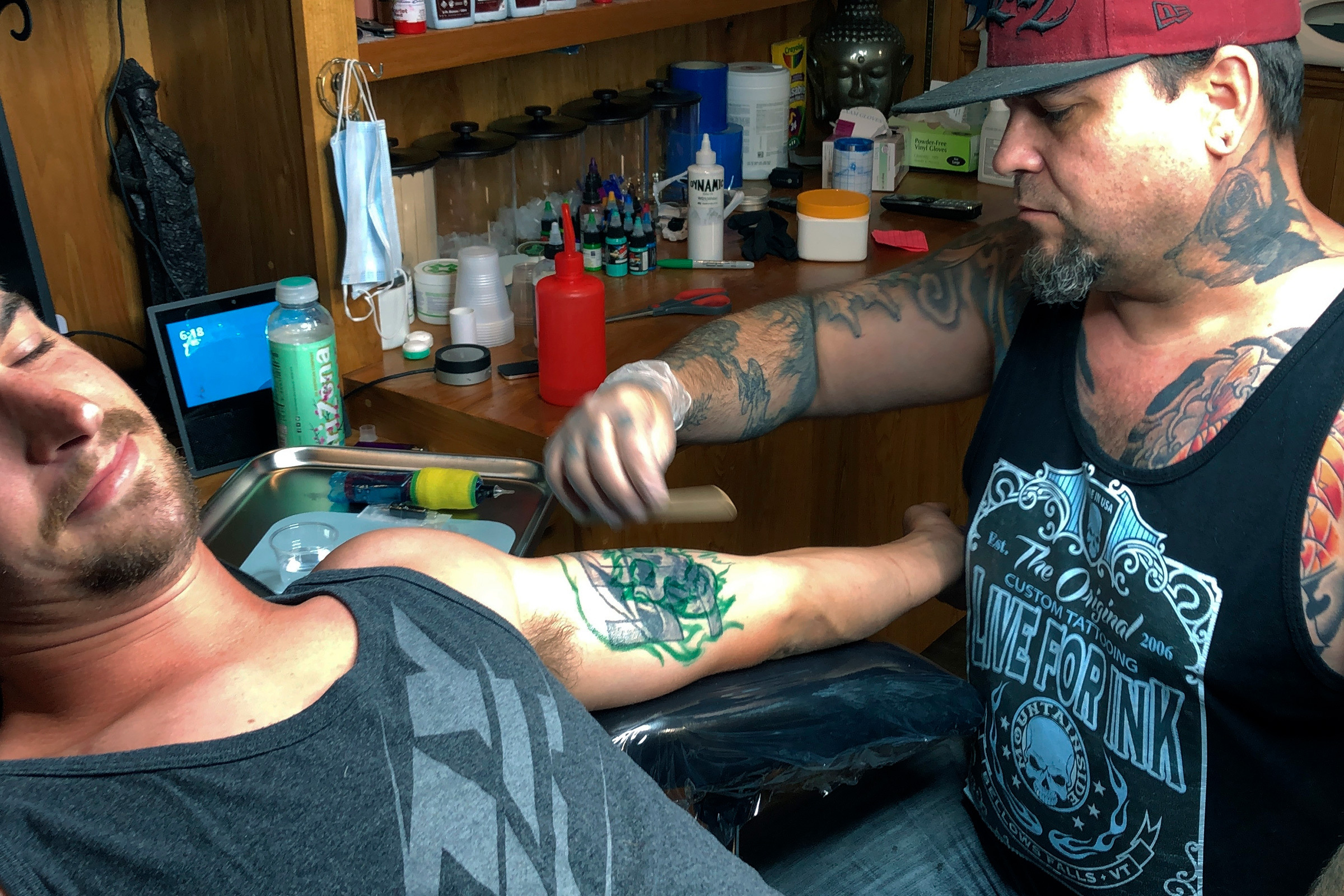
Tattoo artist Alexander Lawrence, right, prepares to cover up a tattoo that contained the image of a swastika on the arm of Dylan Graves, Bellows Falls, Vt. (AP Photo/Wilson Ring)
For more than a decade, Vermont tattoo artist Alex Lawrence has been offering to remove racist tattoos — such as swastikas or the white supremacist slogan “white power” — for free. Recently, as protests over police violence continue and his work has gotten more exposure, Lawrence has seen an uptick in clients taking him up on the offer.
In an interview with NEXT, Lawrence said he believes in redemption and that has motivated him to do his pro bono work.
“I’m just trying to help people erase that part of their past,” he said. “I’ve made plenty of mistakes myself over the years. And I’ve had people help me along the way.”
Lawrence owns Mountainside Tattoo in Bellows Falls, Vermont and tattoos at Sacred Body Tattoo in Enfield, Connecticut. He said he’s creating a nonprofit called “Erase Your Hate” to promote the covering up of racist tattoos and hopes other tattoo artists around the country will join him.
Back In The Barber’s Chair: A Trim And Some Human Connection
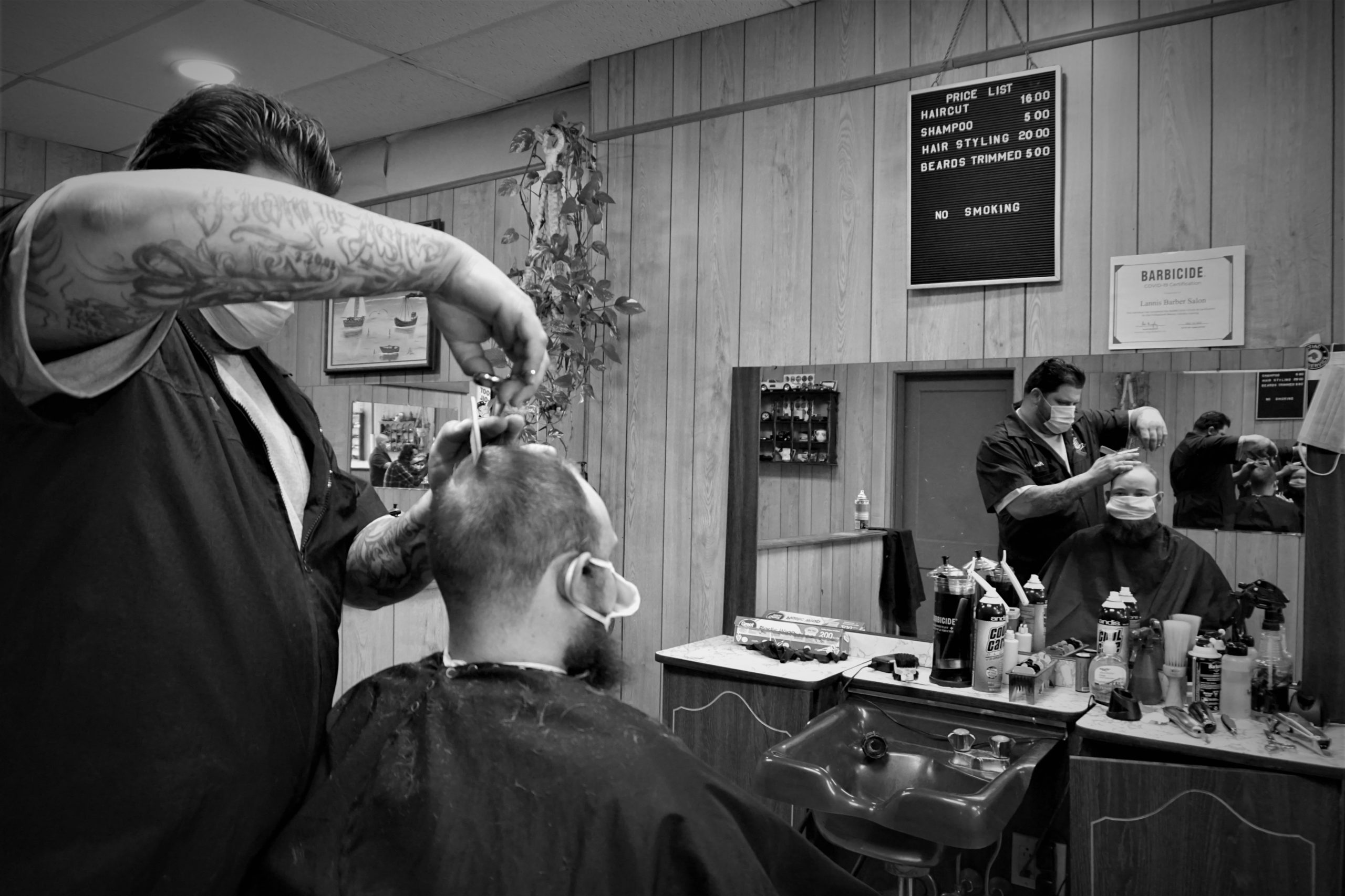
A barber shop in Rhode Island. (John Bender)
Barbershops and hair salons were among the non-essential businesses that closed during the pandemic shutdowns. You probably noticed the big beards and home haircuts gone awry. But now the shops are open again in all New England states with new COVID regulations, and despite fears and uncertainty, clients are returning for a trim.
Listen to John Bender’s audio portrait for The Public’s Radio.
Black Lives Matter Supporters Hold ‘Day of Action’ at New Hampshire State House
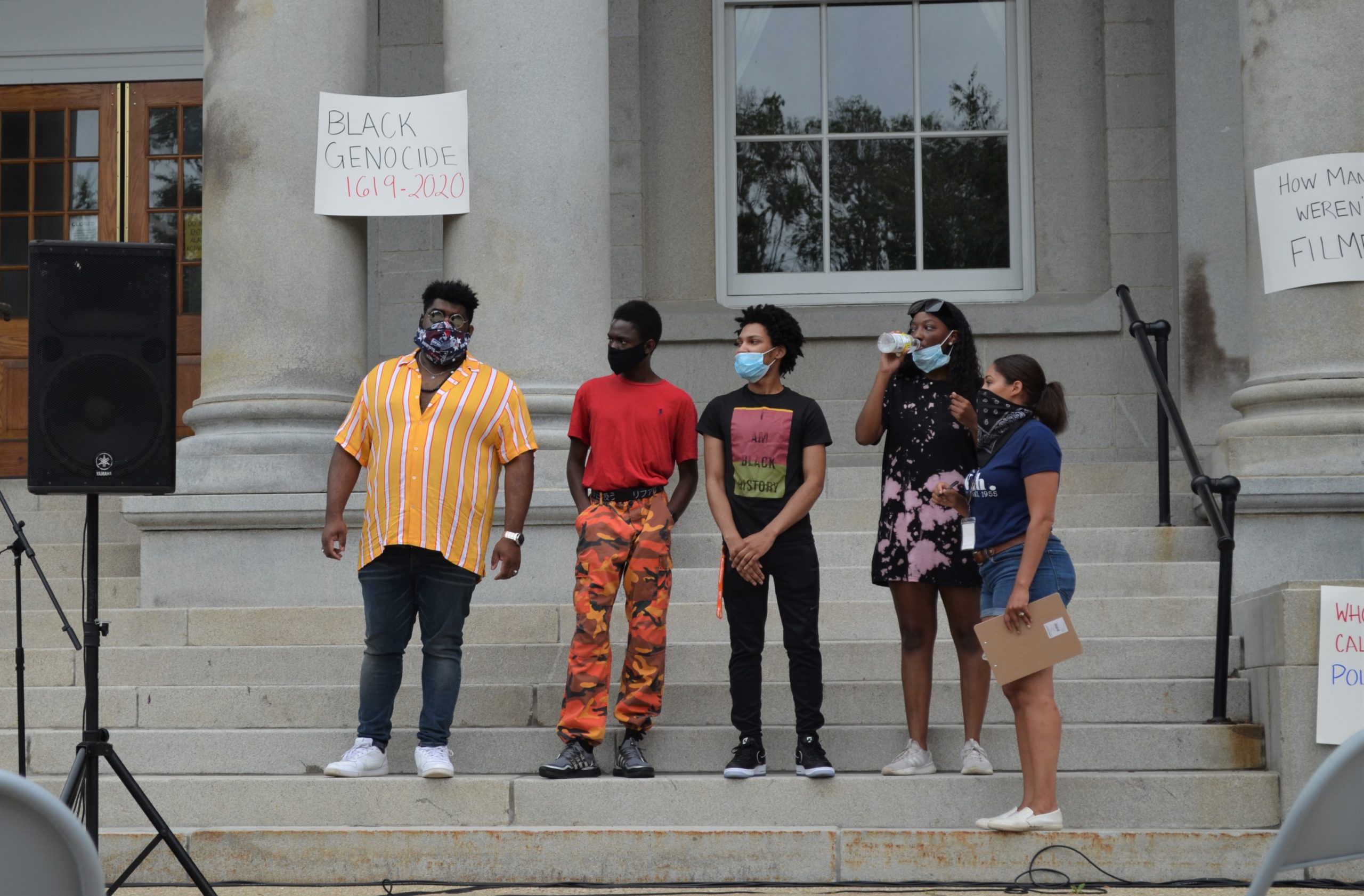
Activists gathered at a rally in Concord, New Hampshire, this past weekend to protest against systemic racism and the police killings of Black Americans. Here are some of their voices in an audio postcard produced by New Hampshire Public Radio’s Todd Bookman.
The rally came as Black Lives Matter supporters in the state released a list of demands aimed at candidates for governor. As Bookman reports, among those demands are an end to the use of tear gas and rubber bullets on unarmed protesters, and the creation of a civilian oversight board for law enforcement. Inside Sources reports that New Hampshire Gov. Chris Sununu was the last gubernatorial candidate to respond, stating on Tuesday that “Further discussion is merited.”
NEXT Wants to Hear From You:
We’re months into the COVID-19 crisis that has affected us all in myriad ways. We want to know: Has the pandemic brought you closer to friends, family members and romantic partners? Or farther apart? What’s been the impact on your personal relationships? Leave a voicemail on our comment line: 860-275-7595. Or send us an email at next@ctpublic.org.
Last week, we asked if you’ve felt disadvantaged in the healthcare system because of your race or ethnicity. Listener Diane Grenier of Rocky Hill, Connecticut called to share her experience — not as a patient, but as a home care nurse who witnessed inequitable care.
“I had a female Black patient in Hamden, CT, and a male white patient in Guilford, CT, both with the same exact diagnosis, same age group, same doctor, same insurance. Everything was matching, and the progression of their disease was matching. The male patient was offered artificial nutrition because he couldn’t eat anymore. … The female patient was not offered artificial nutrition, but she was asking for it. And I called the doctor several times requesting it for her, and he kept saying that she didn’t need it. So I finally said, … ‘Is it because she’s Black?’ And he hesitated, and he literally said, ‘I don’t know.’ It was so sad. … As a white nurse in the field that was quite eye-opening for me.”
Also On This Week’s Show:
- COVID Tests In A Church Parking Lot? For Nashua, It’s Key To Public Health Outreach (NHPR)
- Hospitals Can’t Get Enough COVID-19 Tests (WGBH)
- Some Activists Say Ben & Jerry’s Stance On Racial Justice Doesn’t Go Far Enough (VPR)
About NEXT
NEXT is produced at Connecticut Public Radio
Host/Producer: Morgan Springer
Executive Editor: Vanessa de la Torre
Senior Director: Catie Talarski
Intern: Daniela Luna
Contributors to this episode: John Bender, Craig LeMoult, Daniela Allee, Henry Epp and Todd Bookman.
Guests: Keith Grant, Craig Hickman and Alex Lawrence.
Music: Todd Merrell, “New England” and “Pushback” by Goodnight Blue Moon, “Love Went To Gamble” by Emily and Jake, “So Blue” by Audio Jane, “Epilogue” by The Mallett Brothers Band and “On My Way To You” by Noelle Micarelli.
New to NEXT? You can find every episode or one you missed within our archives.
We want your feedback! Send critiques, suggestions, questions and ideas to next@ctpublic.org. Help us spread the word! If you like what you hear, rate and review us on iTunes.
Follow us on Facebook and Twitter.
